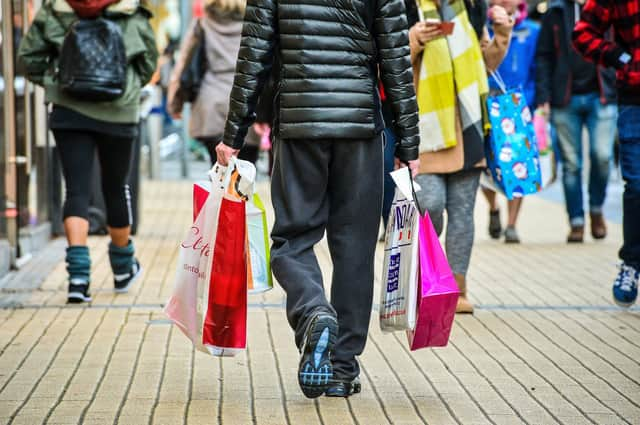Retail sales dropped by 3.2% over Christmas with biggest drop since Covid pandemic


Retail sales in the UK dropped over the Christmas period in a sharper decline than expected by experts and marking the biggest monthly drop since shops closed for the Covid lockdown in January 2021. According to the Office for National Statistics (ONS), sales dipped 3.2% in December and the value of the items bought by customers also dropped by 3.6% as consumers battled with tightened Christmas budgets.
This was down from a rise of 1.4% in November, and well off of the prediction by economists that sales would only dip by 0.5%. The worst hit retail area was department stores, which saw sales fall by 7.1%.
Advertisement
Hide AdAdvertisement
Hide AdHeather Bovill from the ONS said: “Following a strong November, retail sales plummeted in December with all types of outlets being hit. This was the largest overall monthly fall since January 2021, when the reintroduction of pandemic restrictions knocked sales heavily."
She added: “Department stores, clothing shops and household goods retailers reported sluggish sales too as consumers spent less on Christmas gifts, but had also purchased earlier during Black Friday promotions, to help spread the cost. The longer-term picture remains subdued, with quarterly sales dipping, while annual sales volumes fell for the second consecutive year, to their lowest level in five years.”
Food shops were also hit by a dip in sales as the tightened budgets took control, dropping by 3.1%. Ms Bovill said: "Food stores performed very poorly, with their steepest fall since May 2021 as early Christmas shopping led to slow December sales.”
Silvia Rindone, retail lead for consultancy EY in the UK and Ireland, said: “Although Christmas 2023 may not have yielded the sales retailers were hoping for, there are reasons to be optimistic as we enter 2024. Real wages are set to grow again as inflation continues to fall, energy prices remain stable and interest rates are likely to have peaked for the time being, all of which could lead to increased consumer spending.
Advertisement
Hide AdAdvertisement
Hide Ad“Non-food retailers who have taken the time to understand their customers’ priorities and evolve their proposition are reaping the benefits and standing out from the crowd. This is not an easy process and many retailers are still struggling.”
Comment Guidelines
National World encourages reader discussion on our stories. User feedback, insights and back-and-forth exchanges add a rich layer of context to reporting. Please review our Community Guidelines before commenting.
